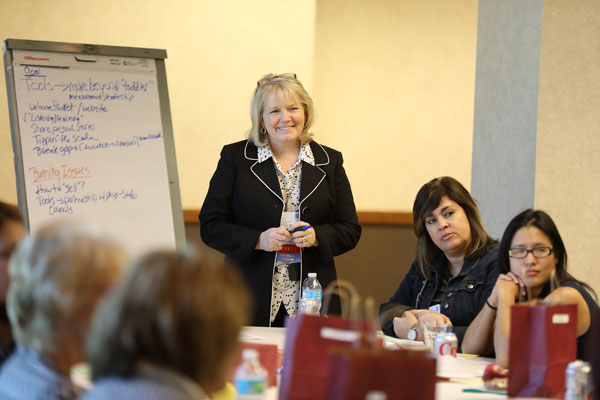
Those of us who serve as advisors in educational roles, learn as well as teach.
Patient educator, Moffitt Cancer Center
Words of Advice, 2013

Those of us who serve as advisors in educational roles, learn as well as teach.
Patient educator, Moffitt Cancer Center
Words of Advice, 2013
As patient and family educators are involved in the education of health professions students and clinicians, they can assume a variety of roles and provide education via different formats and approaches.
| Personal Stories | Share stories, experiences, and insights with a class of students, at Grand Rounds, or with larger audiences at a conference or professional meeting |
| Formal Presentations | Combine stories with components of lecture, perhaps using PowerPoint slides; alone or with co-presenter(s) |
| Panels | With 3-4 other patients/families, share aspects of stories and respond to questions with a skilled moderator |
| Discussion Groups | Participate in or facilitate small group discussions, using curricular materials, but also openly sharing experience of care of both patients/families and students or clinicians |
| Role-play or Simulations | Through use of computers and/or standardized patients, teach communication and interaction skills to students and clinicians |
| Mentoring | Welcome learners into homes/lives to engage in dialogue about illness, quality/safety, navigating the health system |